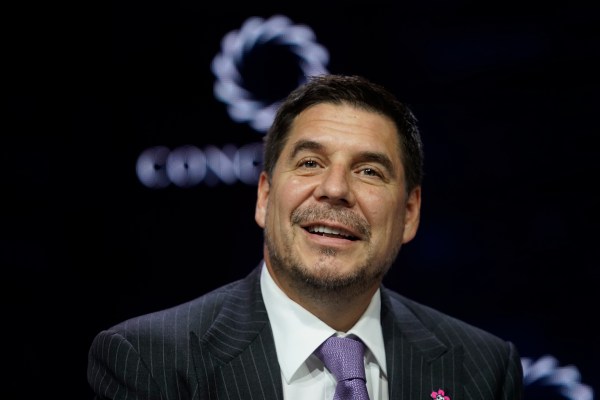Yesterday, in addressing nervous WeWork employees at an all-hands, the company’s new chairman, SoftBank executive Marcelo Claure, told those gathered that their days of worrying are over, says Recode, which obtained a leaked recording of the meeting.
In comments that may stun industry observers who haven’t done the math — and upset at least some percentage of SoftBank investors — Claure is quoted as telling employees: “We have guaranteed the future of WeWork, but more importantly is we’re putting the future back into our hands. There’s no more days needed to go fundraising. There’s no more days needed to go prove to the investor community that we’re a viable company. The size of the commitment that SoftBank has made to this company in the past and now is $18.5 billion. To put the things in context, that is bigger than the GDP of my country where I came from. That’s a country where there’s 11 million people.”
Claure, a native of Bolivia who was named chairman as part of SoftBank’s rescue of the beleaguered co-working company, has been a SoftBank lieutenant for the last five years, and currently holds a variety of titles on its behalf, including COO of SoftBank Group Corp, CEO of SoftBank Group International and CEO of SoftBank Latin America.
He has said he first met SoftBank founder Masayoshi Son after building up his own business, Brightstar — a cellphone reseller — then selling 57% of it to SoftBank in 2013 in a deal that valued the company at $2.2 billion. SoftBank later acquired more of the company before deciding to explore a sale of the low-margin business last year for $1 billion.
By then, Claure was running Sprint, a SoftBank-backed property that installed Claure as CEO in 2014, where he presided over a massive share slide that began before he joined the company and ended only last year when T-Mobile and Sprint agreed to merge. (The deal has been green-lit by the FCC and the Department of Justice, but it’s still facing a lawsuit from several state attorneys general who are trying to block the deal, saying it could hamper competition and drive prices higher. Claure stepped away from running the company and into the role of Sprint’s executive chairman in May of last year to become COO of SoftBank. Sprint’s shares have meanwhile held mostly steady for the past year.)
In talking with WeWork employees, Claure painted a rosy picture of his own career. (“Masa told me, ‘You’re a great entrepreneur. You built a company from scratch, very successful.’ He says, ‘You’re a good operator. You fixed Sprint.’ “)
To assuage fears, he also underscored repeatedly the gamble that SoftBank is taking on WeWork, telling employees, “We’ve had many, many endless nights with Masa in terms of what was the next thing to do with WeWork. I would say that 99% of advice that we got is to cut your losses and run away, but Masa absolutely is a believer in WeWork and the mission and disruption.
“You say why, right? The easy thing was just run away. There were no need. We didn’t have to come in and make an investment of this size. We’re basically betting SoftBank. We’re betting our reputation and we’re betting everything we have that this is going to be a success story. We want people to look at this move as not a failure, but we want this move as a genius move. We had many, many nights of debate. Everything that we look at the business, the more we dig, the more we love the business, the more community managers we interact with, the more we love the business.”
As for how WeWork saves the business, that’s not clear yet, said Claure.
“My goal in the next 30 days is to work with this management team, to work with Artie, Sebastian, and all the incredibly talented members of the team to basically set up a plan,” he said. “This plan is going to be very clear. We’re all going to know what each one of us is supposed to do. I’m going to make sure that it’s not an empty plan. I’m going to make sure there’s numbers. I’m going to make sure that we can measure. I’m going to make sure that we can hold people accountable.”
One possible hitch that Claure understandably didn’t raise yesterday — one in addition to the countless obvious challenges WeWork faces in trying to generate forward momentum, including convincing corporate customers not to look elsewhere for office space — is the Committee on Foreign Investment in the U.S., or CFIUS.
As Bloomberg reported last night, SoftBank will seek national security approval from CFIUS for its takeover, and the committee has stymied the Japanese conglomerate before.
It put conditions on SoftBank’s majority ownership of Sprint; it restricted its control of the investment firm Fortress Investment Group, for which it paid $3.3 billion in late 2017; it also held up SoftBank when it wanted to fill two board seats after it sunk billions into Uber. Indeed, SoftBank was never able to fill those spots, noted Bloomberg. Once the rideshare company went public, it voided some of its obligations to SoftBank.
